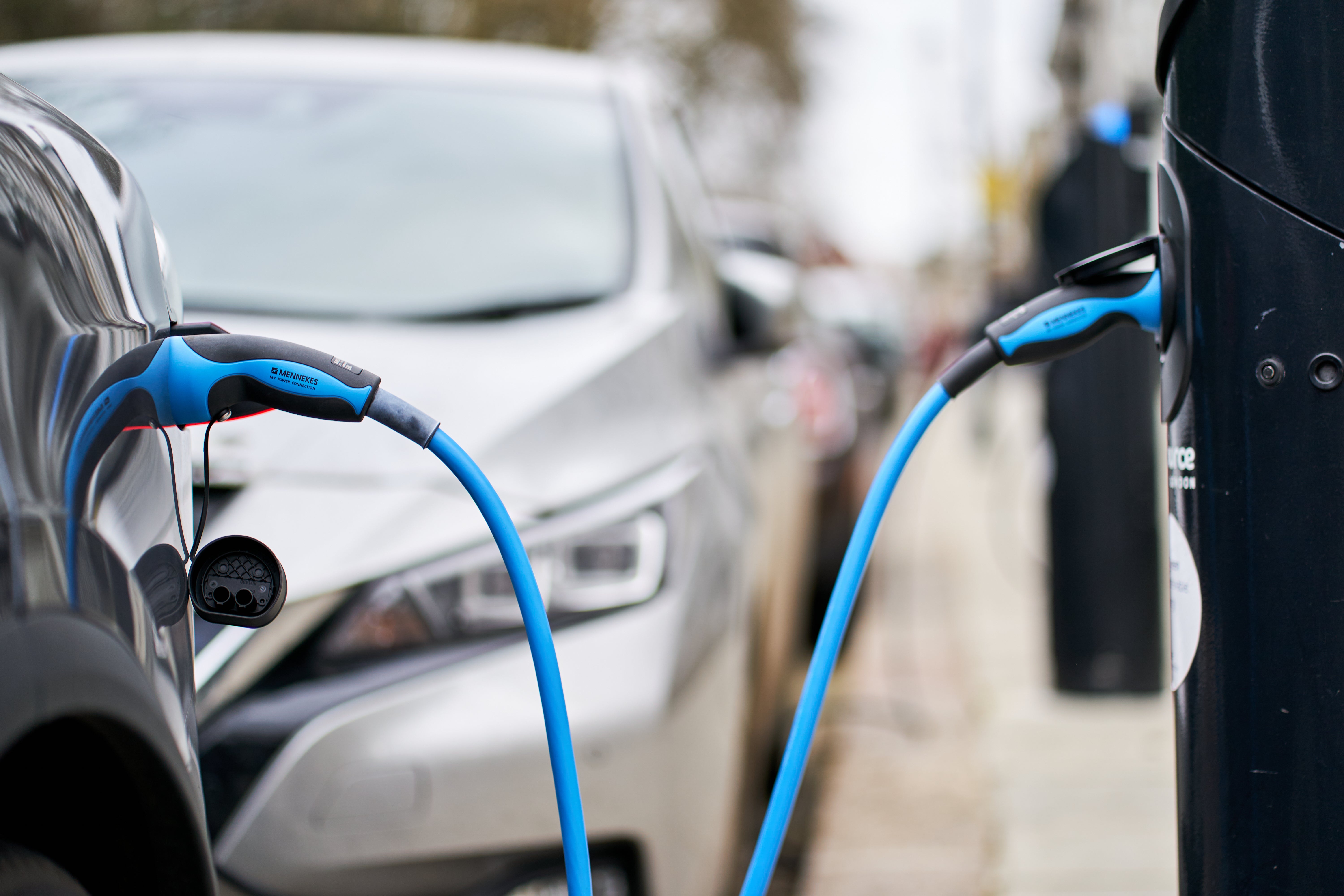Drivers must have ‘right to charge’ in switch to EVs, says car industry body
Manufacturers will be banned from selling new traditionally-fuelled cars and vans in the UK from 2030.

Your support helps us to tell the story
From reproductive rights to climate change to Big Tech, The Independent is on the ground when the story is developing. Whether it's investigating the financials of Elon Musk's pro-Trump PAC or producing our latest documentary, 'The A Word', which shines a light on the American women fighting for reproductive rights, we know how important it is to parse out the facts from the messaging.
At such a critical moment in US history, we need reporters on the ground. Your donation allows us to keep sending journalists to speak to both sides of the story.
The Independent is trusted by Americans across the entire political spectrum. And unlike many other quality news outlets, we choose not to lock Americans out of our reporting and analysis with paywalls. We believe quality journalism should be available to everyone, paid for by those who can afford it.
Your support makes all the difference.A successful transition to electric motoring is only possible with major infrastructure improvements which give drivers “the right to charge”, an industry body has warned.
Society of Motor Manufacturers and Traders (SMMT) chief executive Mike Hawes said the sector is “up for the challenge” of phasing out new petrol and diesel cars, but its efforts must be accompanied by huge investment in public chargers.
Manufacturers will be banned from selling new traditionally-fuelled cars and vans in the UK from 2030.
They will be mandated to sell a certain percentage of zero-emission vehicles from 2024.
Mr Hawes wants this policy to be matched with targets for increasing the number of EV charges.
Speaking at the SMMT’s Electrified summit in Westminster, he said: “As an industry, we’re up for the challenge. Of course we are.
“But we cannot deliver for society without another regulation: the right to charge.”
Plug-in vehicles – which include pure electrics and plug-in hybrids – accounted for more than one in six new cars registered in the UK in 2021.
Last year’s ratio of around 16 EVs for every public standard charger is likely to worsen to approximately 32 EVs per charger this year, with significant regional variations, Mr Hawes said.
He warned: “Things are getting worse because of that pace of market transition for EVs sales.
“We need the infrastructure to catch up.”
People who currently buy EVs – which usually cost more than petrol or diesel cars – “tend to be more affluent” and have off-road parking to recharge their batteries at home, Mr Hawes said.
“About a third of households don’t have a driveway or a designated parking space,” he added.
“We need to make sure they’ve got this charging provision as well.”
The Department for Transport is expected to publish its strategy for EV infrastructure on Friday.
Mr Hawes said he would like it to include “commensurate targets in the provision of infrastructure”.
He went on: “That should be done on the basis of ratio because as EV sales increase, the demand for chargers increases.
“We need to make sure the two are aligned and indeed that the infrastructure is built ahead of demand.”
Analysis by the SMMT found car makers have committed £10.8 billion to develop and produce electric vehicles (EV) and their batteries in the UK since 2011.
This includes plans to take the country’s annual battery-making capacity from 2GWh (gigawatt hours) to around 41GWh by 2027.